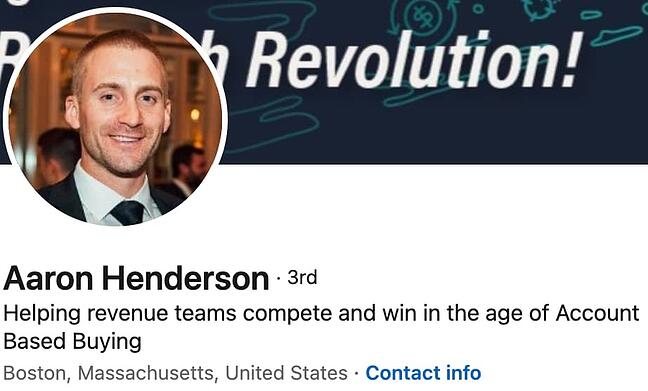
The job of an Educational Consultant is similar to that of a school counselor, except that this position is self-employed. Educational consultants are often self-employed but can also be employed by schools or consulting companies. To be considered for this position, you must have the right education and relevant work experience. Learn more about this career and the responsibilities it involves. This article covers the career path, salary, outlook, and job outlook of an Educational Consultant.
Perspectives on the job
A variety of educational consulting jobs are possible. Many of these consultants have extensive knowledge regarding the current education environment. Some may have been school governors or volunteers. Consultants can work for government agencies, companies, or independently. Education consulting positions can be found at international agencies and with specialist organisations. Consultants can have many responsibilities.
The BLS projects that the demand for education consultants will rise through 2028. This is despite the positive outlook for their job prospects. The state and local budgets will determine the growth. In the coming years, school districts and postsecondary institutions will be held accountable for student achievement data, graduation rates, and test scores. Numerous schools and districts will need education consultants to guide them on technology, curriculum, and other issues. While the job might not offer immediate security, many people working in this field enjoy a high degree independence and can work whenever they want.

Salary
Education consultants can earn a high salary, but not necessarily in the form of a big raise. Education consultants usually work in small organizations or freelance. These professionals must have education-related experience, and follow a professional dress code. These professionals must have a broad knowledge base and be able to listen to clients. They must also be capable of expressing their ideas and referencing education theory when necessary.
Educational consultants have a wide range of salaries. If you're looking for a career in a hot field, your salary might reflect that. Salaries for consultants vary depending on experience, location, and reputation. Some people with a good reputation can earn high salaries while others are more affordable and less highly sought after. The quality of your work and your experience will affect how much you earn.
Education required
An education in educational consulting can help people transition from school to college and beyond. Consultants may help individuals apply for financial aid as well as apply to college. Consultants may be employed by a school district or college. An educational consultant usually has teaching experience. For those who are interested in specializing in a certain area, a master's level in educational consulting may prove to be an advantage. They will need to be familiarized with the admissions test process, assessment, and career development.
An educational consultant could be a teacher in high school, a graduate of college, or a student of post-secondary education. Some consult with students in college or special needs. Others work in schools, whole schools, and with school systems. Some consultants are extremely specialized. There are many options when it comes to educational consulting. Each one requires different education and experience. However, the majority of consultants have a bachelor's degree. These are the requirements for educational consulting jobs:

Career path
According to the Bureau of Labor Statistics the demand for educational consultants is increasing. It is predicted that it will increase by six percentage points over the next eight-years. This growth will be affected by state and local budgets. Schools and districts will face increased pressure to increase test scores, graduation rates, and student achievement data. Schools and districts are now looking to outside consultants for help in implementing new technology and curriculum. While there is not immediate job security, education consulting has a bright future for those who have a passion for it.
The term educational consultant can be used to refer to any of three career paths. While some people use the term to describe state employees or government agencies workers, others use it to describe freelance professionals working for private companies. These individuals are sometimes called educational planners. This designation can be used to describe individuals with specific educational backgrounds. While the majority of educational consultants are educators, some specialize in a particular field. Here are some suggestions to help you decide which career path to take.
FAQ
How do I become a successful consultant?
First, find a subject you're passionate about. First, build relationships. It is important to understand the needs of clients and their business. And finally, you must deliver results for them.
Although you don't have the ability to do everything perfectly, you must be better than anyone else. You need passion for what your do. It is not enough to simply say, "I want to become a consultant." You have to believe in yourself, and in what you are doing.
Who hires consultants
Many organizations hire consultants to assist with projects. These include small businesses, large corporations, government agencies, non-profits, education institutions, and universities.
Some consultants work directly with these organizations while others freelance. The hiring process will vary depending on the complexity and size of the project.
When hiring consultants, you will probably go through several rounds of interviews before choosing the person you think would be best suited for the position.
How do I choose a good consultant?
There are three main factors to consider:
-
Experience - How many years of experience is this consultant? Are they a beginner, intermediate, expert, or some other level? Is her resume a proof of her skills and knowledge?
-
Education – What did the person learn in school? Did he/she take any relevant courses after graduating? Were there any evidences of this learning in his/her writing?
-
Personality - Are we attracted to this person? Would we hire him/her to be our employee?
-
These questions are used to determine if the candidate is right for us. If the answers are not clear, it may be worthwhile to interview the candidate in person to get more information about them.
How do I start an LLC consultancy business?
The first step is to decide what service provider you want to be. Then you need to make sure you are qualified for those services. It may also be beneficial to look for someone who is already qualified to do what you desire and to see how they work.
Once you know your product/service, you should start looking for the right market. You may have to create more if there aren’t enough.
You will then need to decide if it is worth starting your own business, or hiring others to do it.
You could also consider starting your own consulting company by getting a license from the state, but this requires quite a bit of paperwork and legal fees.
Statistics
- On average, your program increases the sales team's performance by 33%. (consultingsuccess.com)
- 67% of consultants start their consulting businesses after quitting their jobs, while 33% start while they're still at their jobs. (consultingsuccess.com)
- WHY choose me: Why your ideal client should choose you (ex: 10 years of experience and 6-week program has helped over 20 clients boost their sales by an average of 33% in 6 months). (consultingsuccess.com)
- So, if you help your clients increase their sales by 33%, then use a word like “revolution” instead of “increase.” (consultingsuccess.com)
- Over 50% of consultants get their first consulting client through a referral from their network. (consultingsuccess.com)
External Links
How To
How To Start A Consultancy Company, And What Should I Do First?
It's a great way for you to make money online by starting a consulting company. You don't have to have any business experience. A good place to start your own consulting company is to build a website. Once you've built a website, you'll want to use social media platforms such as Facebook, Twitter, LinkedIn, Instagram, Pinterest, YouTube, etc... to get the word out about your services.
With these tools, you can put together a marketing plan that includes things like:
-
Writing content (blogs).
-
Contacts are essential for building relationships
-
Generating leads (lead generation forms)
-
Selling products through ecommerce websites
Once your marketing strategy is developed, you need to find clients willing and able to pay for your services. Some prefer to connect with people through networking events. Others prefer to use online resources like Craigslist and Kijiji. The choice is up to you.
Once you have a new client, you need to discuss terms. This could include hourly or flat fees as well as retainer agreements and flat fee contracts. So that you are able to communicate clearly during the entire process, it is important to understand what you expect from a client before you accept them.
An hourly agreement is the most common contract for a consulting service. This contract allows you to pay a fixed amount each week or month for certain services. You might be able, depending on which service you offer, to negotiate a discount. Make sure you understand what you are signing when you accept a contract.
Next, create invoices and then send them to clients. Invoicing is one of those things that seems simple until you actually try it. There are many ways that you can invoice your clients depending on what your preferences are. Some people prefer to email their invoices directly, while others prefer to mail them hard copies. No matter what method you use, ensure it works for your business!
Once you have completed creating invoices you will want to collect payment. PayPal is the most popular payment option because it's easy to use and provides multiple payment options. You can also use Square Cash, Square Cash (Google Wallet), Square Cash, Square Cash, Apple Pay and Venmo as payment processors.
Once you're ready to begin collecting payments, you'll want to set up bank accounts. Separate savings and checking accounts will allow you to track your income and expenses independently. You can also set up automatic bank transfers to pay bills.
While starting a consultancy company may seem daunting, once you master the basics, it becomes easy to manage. You can read our blog post to learn more about how to start a consultancy business.
A consulting business is a great way of making extra money without worrying about your employees. Many consultants work remotely. They don't have any need to deal with office politics, long hours or office politics. Being able to work remotely allows you more freedom than traditional employees.